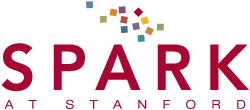Bridging The Gap

Natalie Torok begins NASH clinical study
July 1, 2021
In her quest to help treat patients with non-alcoholic steatohepatitis (NASH), SPARK Scholar Natalie Torok is beginning to recruit patients in a clinical trial investigating a repurposed drug to prevent progression of the liver disease.
NASH is the most common liver disease in the U.S., affecting over 3 million people each year. There are no FDA-approved treatments for the disease, which causes inflammation and scarring of the liver. The only curative treatment for NASH is liver transplant.
The disease is already a serious problem in the U.S. and is only projected to get worse. NASH is closely linked to the obesity epidemic, and 30-70% of diabetes patients develop NASH. In the next 15 years, Dr. Torok estimates that the prevalence of NASH will increase by 30-50%, and mortality will double.
“Identifying a drug that can improve NASH and prevent fibrosis progression would be very important,” Dr. Torok said. “The fibrosis stage in NASH is the main indicator of associated morbidity and mortality outcomes, therefore halting or reversing fibrosis are the main goals of treatment,” she added.
Dr. Torok’s SPARK project began in 2019 to assess small molecules to prevent development of NASH. She and her team identified the drug idebenone, a compound similar to the antioxidant molecule coenzyme Q10. Idebenone is approved in Europe as Raxone to treat Leber’s Hereditary Optic Neuropathy (LHON), a mitochondrial disease, and is under investigation to treat additional neurological and mitochondrial disorders.
Dr. Torok found that idebenone inhibits the Src homology 2 domain containing (SHC) protein, which contributes to inflammation and fibrosis in the liver. Her team previously showed that SHC is induced in the liver in aging mice, and inhibition of the protein reverses fibrosis and improves inflammation in NASH animal models.
Now, Dr. Torok is enrolling adult NASH patients in a randomized, double-blind, placebo-controlled Phase I/IIa clinical trial to investigate the safety and tolerability of oral idebenone, and explore the drug’s efficacy in improving fibrosis and reducing NASH progression. The Stanford trial will test oral idebenone and placebo in 45 participants over 48 weeks. Patients will undergo regular safety evaluations to monitor for adverse events and regular liver tests to assess serum liver chemistries and improvement in liver stiffness, and will be monitored post-treatment for 12 weeks.
Results for the 18 month study are expected in about 2 years, in 2023. Dr. Torok next hopes to begin a Phase IIb/III study in 2025.
Many SPARK projects focus on repurposed drugs, and multiple SPARK success stories show the value of drug repurposing solutions. Repurposed drugs have been tested extensively for a different disease and have already shown to be safe in humans, potentially saving time and costs during drug development.
For instance, idebenone is being tested in 24 clinical trials in the U.S. and Europe for diseases including Alzheimer’s and Duchenne muscular dystrophy, and no significant adverse effects have been noted in those populations.
Dr. Torok said, “Idebenone is a very well characterized molecule, currently approved by the EMA. As such there have been extensive studies, and the safety profile is well documented. Therefore, we can build on prior literature, and directly study its safety profile and efficacy in NASH patients.”
